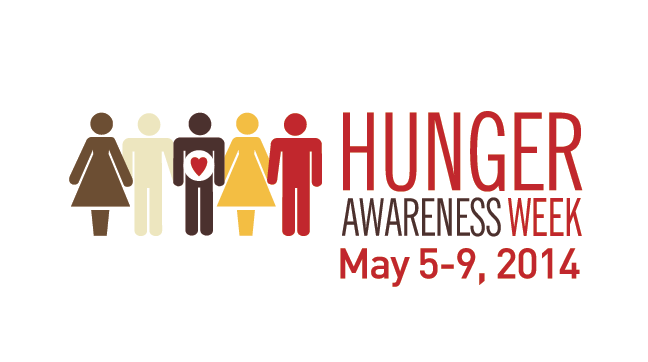
Nine-year-old Jason doesn't have a lot of food in his house. “Sometimes there is nothing in our refridgerator,” he told a Salvation Army worker. “If The Salvation Army didn't give me lunch I'd be hungry.” As The Salvation Army recognizes Hunger Awareness Week, May 5-9, we acknowledge that the fight to end hunger is far from over. “The effects of hunger are serious,” says Captain Les Marshall, Territorial Public Relations and Development Secretary for The Salvation Army Canada and Bermuda. “Lack of access to adequate and nutritious food affects physical and mental health, academic achievement, economic productivity and more.” 
Four million people in Canada, including more than a million children, have inadequate or insecure access to food. While the Canadian economy is relatively stable, many families and individuals continue to struggle to make ends meet and are forced to choose between shelter and food. Last year, The Salvation Army served 2.6 million free meals at our feeding centres and 100,000 children were fed through our school feeding programs. “The Salvation Army will continue to serve as long as there is a need,” says Captain Marshall. Recently a young boy who receives lunch from The Salvation Army in Regina, Sask., approached one of our workers. “Here is all my allowance,” he said, placing a loonie in the workers' hand. “You helped me and I want you to have it.” Please help us work towards a Canada where no one goes hungry. Visit www.salvationarmy.ca for more information about volunteer and donor opportunities. |
More Than $3 Million Raised for Partners in Mission in 2025
Territory exceeds fundraising goal to support international ministries.
NewsResult demonstrates the compassion and commitment of individuals across the territory who came together to make a global difference through The Salvation Army’s ministry.
Building a Better World Together
The Salvation Army celebrates International Development Week.
by Kyle Mangio FeaturesFrom February 1-7, 2025, the international development department holds a vibrant and immersive open house in honour of International Development Week, transforming their space at The Salvation Army’s territorial headquarters in Toronto into a lively, global showcase brimming with stories, laughter and hope.
A Lenten Pathway to Right Relationships
Walking softly with the United Nations Declaration on the Rights of Indigenous Peoples.
by Captain Crystal Porter FeaturesIn this Lenten season, we invite you to join us as we reflect on the wisdom of Scripture, listen to the voices of Indigenous Peoples and practise lament, using a new resource created by the territorial Indigenous ministries department: “Walking Softly With the Declaration: A Lenten Pathway to Right Relationships.”










Leave a Comment